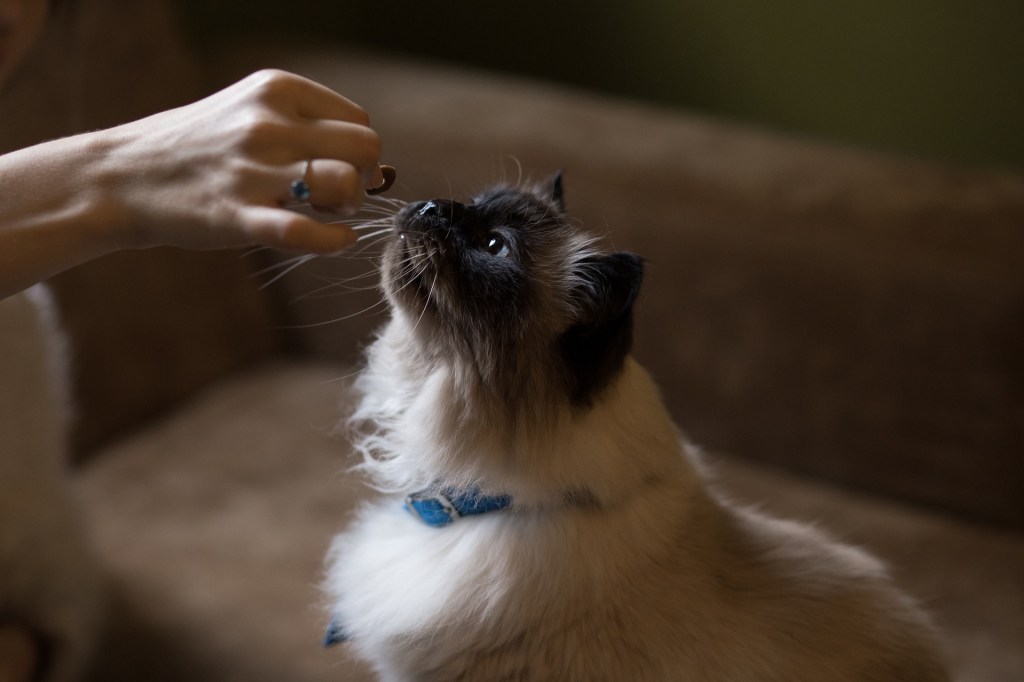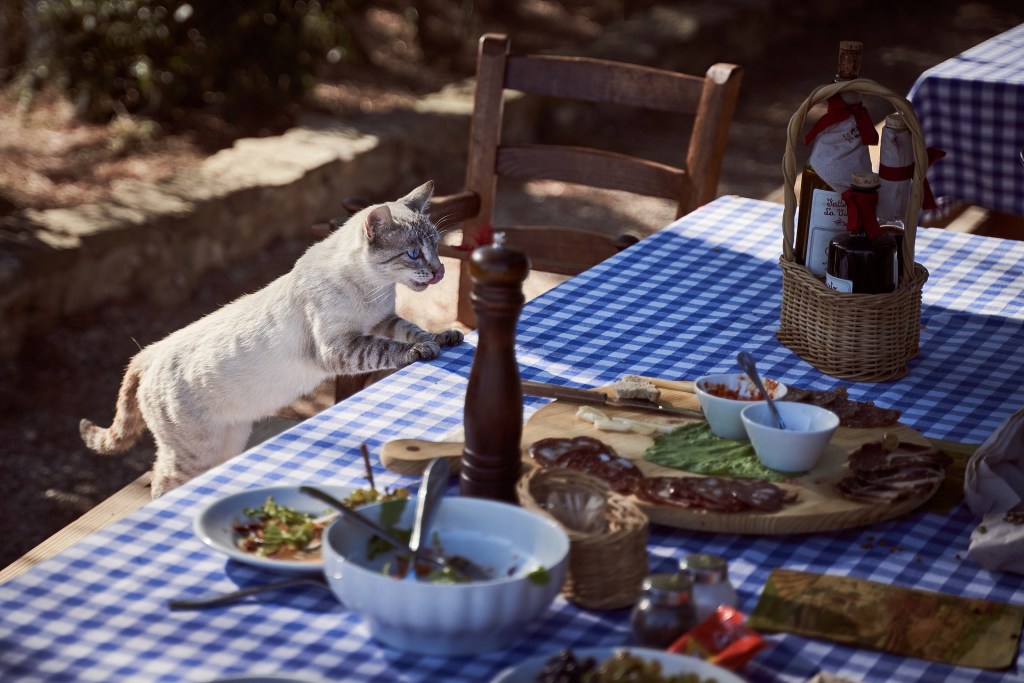We’ve all been there: you’re enjoying your dinner when your cat appears beside you, begging for a bite of what’s on your plate. While the food might be nutritious for you, certain human foods can be highly toxic to cats. It’s best to avoid feeding your cat from your plate to be safe, but if you do want to share a bit of food from your kitchen with your cat, double-check first to make sure that what you’re feeding isn’t toxic. And, if your cat ever helps himself to some treats from your plate, you’ll need to know whether you’re dealing with a veterinary emergency so you can take the right steps. Can cats eat tomatoes, and what about other common foods in your kitchen? Some of the answers may surprise you.
Can cats have tomatoes?
The answer here is, it depends. According to the ASPCA, tomato plants, including the fruit, are toxic to cats (and dogs and horses) when they’re not ripe. Ingesting the plant or the fruit could lead to loss of appetite, a severely upset digestive system, excessive salivation, depression, weakness, dilated pupils, and a slow heart rate. Interestingly, when the tomato is ripe, it is non-toxic to cats.

Are cooked tomatoes safe for cats?
Potentially. Presuming that the cooked tomatoes were ripe, they’re not necessarily toxic, but it’s important to consider if other foods were added to the cooked tomatoes, like when making a pasta sauce. The ASPCA notes that salt can lead to problems like excessive thirst and urination. In extreme cases, cats who ate too much salt might experience vomiting, diarrhea, depression, seizures, and potentially death.
Other common ingredients, like onions and garlic, can also cause digestive upset. They can cause damage to your cat’s red blood cells and even anemia.

What other foods are toxic to cats?
According to PetsMD, there are many other foods that are toxic to cats. Some of these foods are commonly found in your kitchen, so it’s important to know their risks and keep them away from your cat.
Alcohol
Alcohol of any sort is dangerous to your cat. Just like alcohol affects our livers and brains, it can affect your cat’s liver and brain. Unfortunately, cats need to digest only minimal amounts of alcohol to withstand serious damage, and two teaspoons of whiskey are enough to put a five-pound cat into a coma. Higher-proof alcohols are even more dangerous, so keep all alcoholic beverages well away from your cat.
Yeast
Yeast dough swells as it rises, and if your cat ingests raw dough, it will swell in your cat’s abdomen. The fermenting yeast can also produce alcohol, leading to potential alcohol poisoning. If your cat has ingested enough yeast to produce substantial alcohol, that alcohol poisoning can lead to a coma or death.
Caffeine
Caffeine in larger amounts can also be fatal for your cat, and caffeine is in all sorts of foods like coffee, tea, chocolate, and stimulant drinks. Caffeine poisoning can cause rapid breathing, heart palpitations, and muscle tremors, and you might notice that your cat is unusually restless. Unfortunately, there is no treatment for caffeine poisoning.
Xylitol
It’s also important to be aware of the dangers of xylitol. According to the ASPCA, xylitol is a sweetener that you’ll find in many common products like candy, toothpaste, and gum. Xylitol is extremely dangerous because it can cause your cat to release insulin, which then lowers his blood sugar levels. That can lead to liver failure. You might notice your cat vomiting, losing coordination, and becoming unusually lethargic. He might also experience seizures.
If your cat ingests any of these foods, it’s important to consult with a veterinarian right away. Call your regular vet’s office for help, but if it’s after hours or on the weekend, you may need to contact your local emergency veterinary hospital. Try to be prepared with the specific food your cat ingested, including the product label if it was a packaged product. Provide an estimate of how much of the food your cat ate, when he ate it, and any symptoms that you’re seeing. It’s also important to share any health issues your cat has, as well as his age and weight. Getting your cat help right away might save his life, but it’s important to act quickly in these emergencies.
Editors' Recommendations
- Wondering why cats chirp? Fascinating reasons why your cat chirps at birds (and you)
- When do kittens start eating food? Know the facts for your fur baby’s health
- Why doesn’t my cat meow? Here are 5 reasons why your feline friend is silent
- The kind of nutty behavior to expect if you don’t neuter your cat
- Cat begging for food? How to make it stop for good so you can eat in peace



